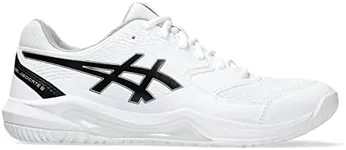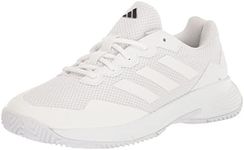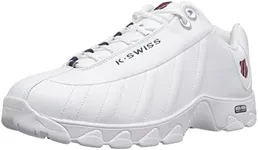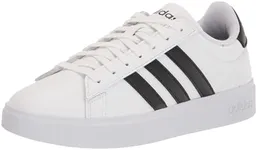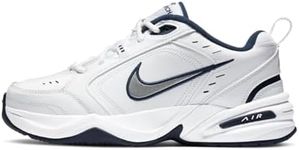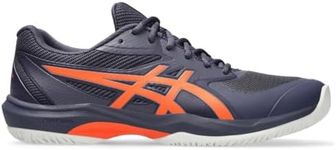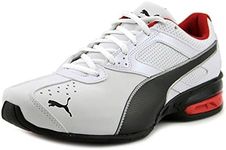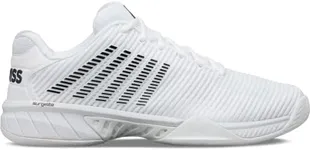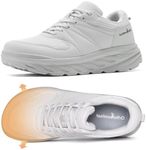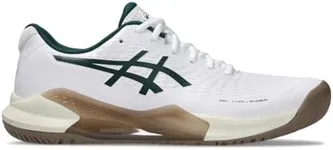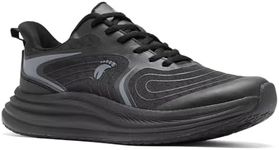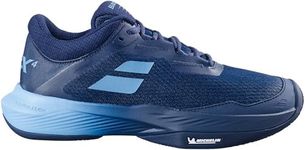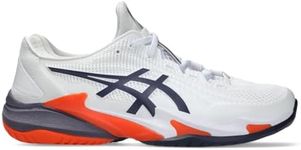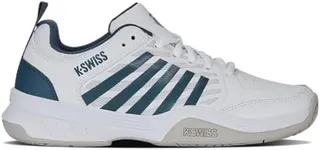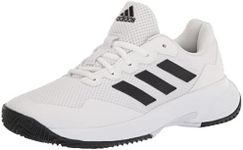Buying Guide for the Best Mens Tennis Shoes
Choosing the right men's tennis shoes is crucial for both performance and comfort on the court. The right pair can help prevent injuries, provide the necessary support, and enhance your overall game. When selecting tennis shoes, consider the type of court you play on, your playing style, and your foot type. Here are some key specifications to consider when picking the best tennis shoes for you.Court TypeTennis shoes are designed differently based on the type of court you play on: hard court, clay court, or grass court. Hard court shoes are durable and provide good support and cushioning. Clay court shoes have a herringbone pattern on the sole to prevent clay from clogging and to provide good traction. Grass court shoes have nubs or pimples on the outsole to grip the grass. Choose the shoe that matches the court you play on most frequently to ensure optimal performance and durability.
CushioningCushioning in tennis shoes helps absorb the impact of running and jumping, reducing stress on your feet and joints. Shoes with more cushioning are ideal for players who play on hard courts or have a history of foot or joint issues. If you prefer a more responsive feel and are lighter on your feet, you might opt for shoes with less cushioning. Consider your comfort and any previous injuries when deciding on the level of cushioning you need.
Support and StabilitySupport and stability are crucial to prevent injuries, especially during lateral movements common in tennis. Shoes with good support have features like a sturdy upper, a firm heel counter, and a supportive midsole. Stability is often enhanced by a wider base and a lower-to-the-ground design. If you have a history of ankle injuries or need extra support, look for shoes with enhanced stability features. Your playing style can also guide you; aggressive movers may need more support than baseline players.
DurabilityDurability refers to how long the shoes will last, especially under the stress of frequent play. Shoes with reinforced areas, such as the toe and outsole, tend to last longer. If you play frequently or are hard on your shoes, look for models known for their durability. However, more durable shoes might be heavier, so balance your need for durability with your preference for lighter footwear.
Fit and ComfortThe fit and comfort of tennis shoes are highly personal and can significantly affect your performance. Shoes should fit snugly but not too tight, with enough room in the toe box to wiggle your toes. Consider the width of your feet; some brands offer wider or narrower options. Try on shoes at the end of the day when your feet are slightly swollen to ensure a good fit. Comfort can also be influenced by the materials used in the shoe's upper and the design of the insole.
WeightThe weight of tennis shoes can affect your speed and agility on the court. Lighter shoes can help you move faster and feel more agile, which is beneficial for quick movements and fast-paced play. However, lighter shoes might offer less cushioning and durability. Heavier shoes often provide more support and durability but can slow you down. Consider your playing style and physical condition when choosing the weight of your tennis shoes.
